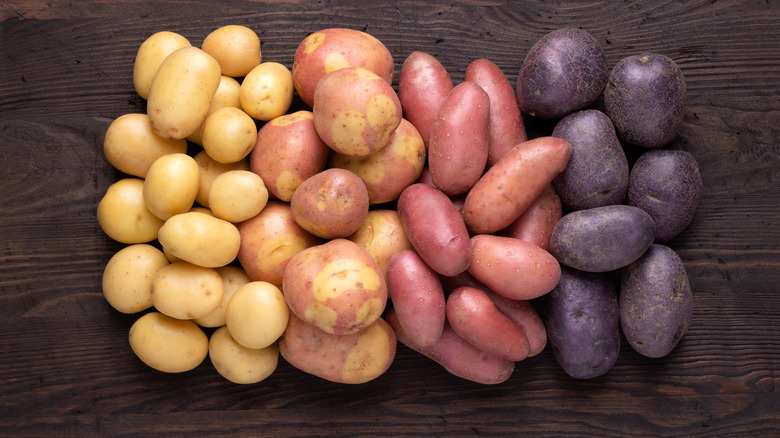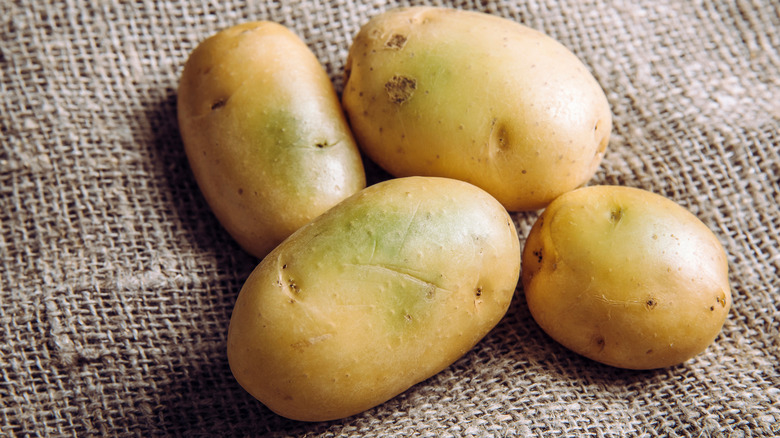Can You Safely Eat Green Potatoes?
Potatoes are a pantry staple in the United States and around the world. Whether you prefer French fries, scalloped potatoes, gnocchi, hash browns, mashed potatoes, or another dish on the long list which contains the magical potato, you quickly understand why it is considered one of the most important foods grown in the world, according to BBC.
In fact, the potato's origin story is 8,000 years old and has its beginnings in the South American Andes where it was first grown as a crop before making its way over to Europe and beginning its global journey. And while the likes of Russia, China, India, and Ukraine are the largest growers of this root vegetable, in Peru there are almost 5,000 different varieties of the potato that come in all different shapes, sizes, and colors.
Healthline shares that potatoes are nutrient-rich and have a wealth of vitamins and minerals, which is good news because, per Statista, Americans averaged a whopping 30.6 pounds per person in potato consumption in 2020. If you are among those households who eat a lot of potatoes, you may have even encountered potatoes with skins that have started to turn a green reminiscent of the color of grass. What is the green color, and are green potatoes safe to eat?
What to do if your potatoes are green
The United States Department of Agriculture says that while you do not need to toss green potatoes, you probably shouldn't eat the part that has turned green and instead should simply cut or peel away the skins and shoots.
What exactly is the green on the potato? The government site turned to the University of Idaho Cooperative Extension Service to help us gain a full understanding of green potatoes. The school of higher education explains that potatoes turn green due to light exposure, but that green color is just chlorophyll, which is the substance that makes plants green and helps them make food (via National Geographic Society).
That said, the University of Idaho goes on to share that while chlorophyll poses no risk, when potatoes turn green they make more of a naturally occurring substance called solanine. When the levels of solanine escalate in your potato, it will not only change the taste of your potato, it could become a health concern if you were to eat "large quantities" of green potatoes. That's why Food52 recommends storing your potatoes in a cool, dry spot in your kitchen, devoid of light. When stored properly, the site shares that your potatoes can stay fresh for months.

